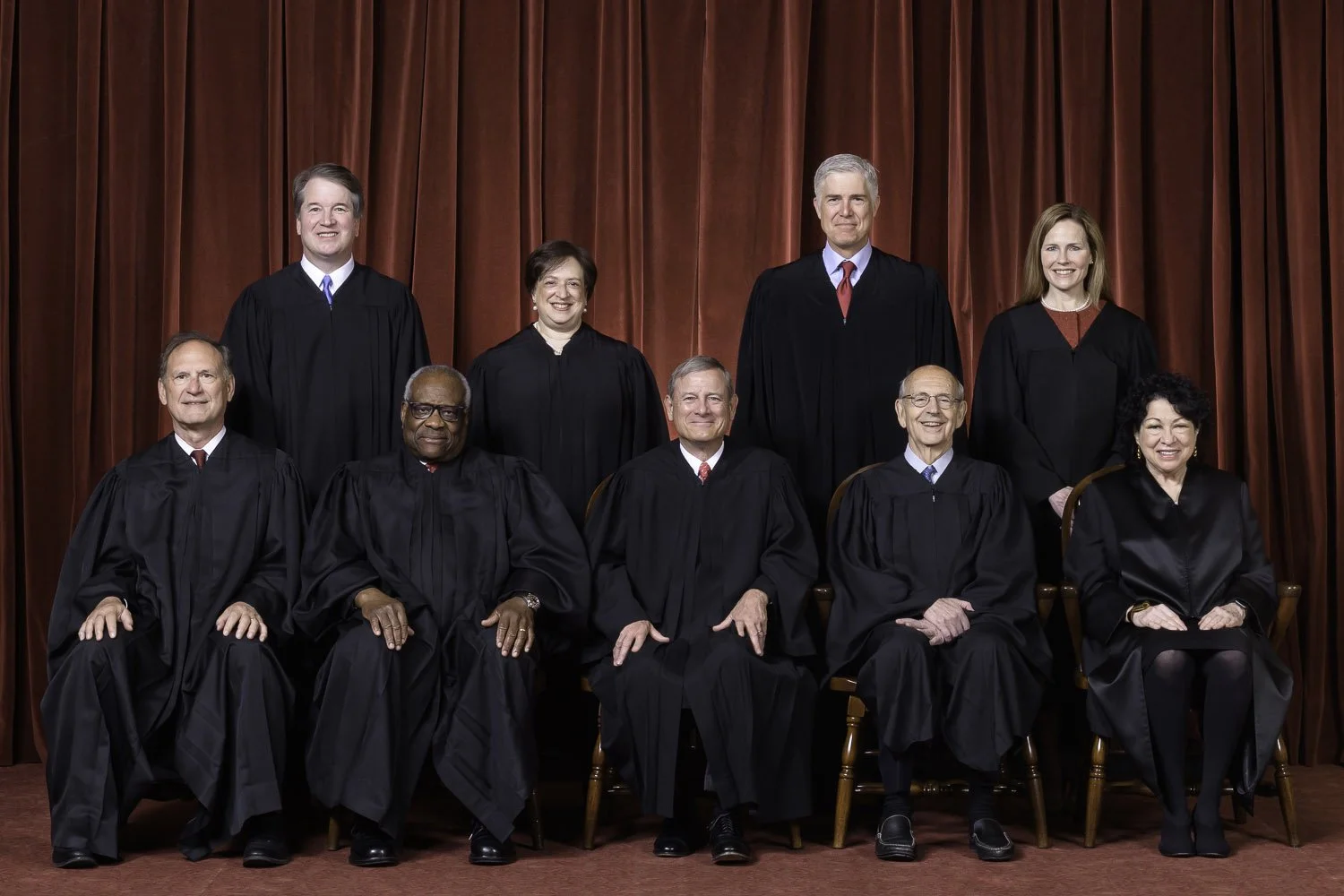OPINION: Appointing a Black woman to the Supreme Court is not affirmative action
“The Supreme Court as composed October 27, 2020 to present.” Photo by Fred Schilling, Collection of the Supreme Court of the United States.
Zach Richards is a junior studying history and an opinion writer for The New Political.
Please note that these views and opinions do not reflect those of The New Political.
Almost two years ago, President Biden promised to appoint a Black woman to the Supreme Court if given the opportunity. Now that justice Stephen Breyer has announced his retirement and the opportunity has come, Biden has made it clear that he intends to follow through with his promise. Republicans have attacked this plan, comparing it to affirmative action and saying white men need not apply.
Despite these attacks, Biden should still follow through with fulfilling his promise anyway.
Republicans are also arguing that it is racist to limit the selection to only Black women if it is deemed discriminatory to do the same with white men. Their claim is if everyone is truly equal, why should the president make a promise to exclusively select Black nominees? This seems like a good argument at its face, but it fails to take into account historical context.
94% of all justices who have served on the Supreme Court have been white men. Only five women and two men of color have ever served on the court. Two of the three justices appointed over the past five years are white men.
White men make up 30% of the U.S. population. If the Supreme Court was representative of the U.S. population, three out of nine justices would be white men. However, even if Biden replaces Stephen Breyer with a Black woman, four white men will still serve on the court.
The ultimate context is that, of the 115 Supreme Court justices in the last 230 years, none have been Black women. Some conservatives argue that Biden’s promise might take away from the accomplishment, saying the first Black woman on the Supreme Court should not get the position just because she is a Black woman. Others have also made the racist assumption that Biden will pick someone unqualified for the position simply to fulfill his promise.
Among the people Biden is considering for the Supreme Court include Ketanji Brown Jackson, a member of the DC Circuit Court and former clerk for Breyer; Leonra Kruger, who is on the California Supreme Court and clerked for former justice John Paul Stevens, and J. Michelle Childs, a district court judge for South Carolina.
The idea that this woman will be picked over more qualified candidates just because she is a Black woman is absurd. The deeper connotation that there are not highly qualified Black women out there is even more ridiculous.
No one will ever be so objectively perfect for the position that they inherently deserve the nomination. But considering there are hundreds of qualified jurists in the country, it is reasonable to choose a Black woman to join the Supreme Court. Their perspective has long been excluded from the highest court in the nation. It’s time for a change.
Ultimately, Biden does not need any votes from Republicans to get his pick on the Supreme Court. He should pick a Black woman all 50 Democrats in the Senate can agree on and ignore any negative comments Republicans may have. Anyone Biden nominates will have to speak before the Senate Judiciary Committee and defend her qualifications against a tough jury. She will have to convince Joe Manchin, a continuous thorn on the side of Biden’s agenda, to vote for her. If she can do that, then she certainly deserves a place on the court.

